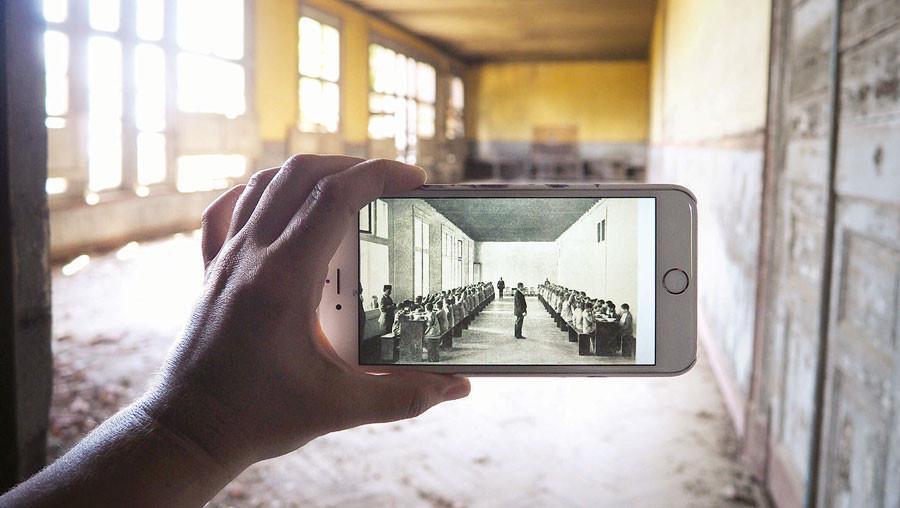
A former Greek primary school, now used as an art space, is hosting an exhibition on the Prinkipo Greek Orphanage, which once served as a home for the orphans of Istanbul’s dwindling Greek community for many decades.
The exhibition titled “206 Rooms of Silence: Etudes on Prinkipo Greek Orphanage” will be displayed at the Galata Greek School until Nov. 10.
The exhibition focuses on the Prinkipo Greek Orphanage, which is considered one of the world’s seven most endangered sites by Europa Nostra, a non-governmental organization known for its work on the protection of cultural heritage.
The exhibition opens a door to the reminiscence of this memory space, which is the largest wooden building in Europe and is the work of the famous architect Alexandre Vallaury. The structure has witnessed many incidents from past to present and in a way has kept a record of Turkey’s ever-changing history.
Although this majestic building seems to have been buried in silence with all its memories, it keeps reminding us of what has been forgotten and what will soon be disappeared, standing tall atop a hill but risking collapse.
The Galata Greek School nearly shared the same destiny with Prinkipo Greek Orphanage. The exhibition tells the transformation of Prinkipo Palace to a home that embraced the orphans of Istanbul’s Greek community and to a ghost building as a result of harsh politics against the country’s minorities.
Artworks that shed light on the history with verbal testimonies, documentary and visual documents to convey the presence of a school to another by Ali Kazma, Murat Germen, Dilek Winchester and Hera Büyüktaşcıyan based on the Prinkipo Greek Orphanage will take place in the exhibition curated by Hera Büyüktaşcıyan.
Another part of the project includes discussions, readings and workshops on the axis of cultural heritage, memory and orphanage. Various activities will be organized within the framework of the practices the Greek community has been exposed to, the legal status of the orphanage, philanthropy, orphanage experiences of other minority communities, along with the evacuation of the orphanage in 1964 and the transfer of children to another center.
Additionally, there will be film screenings and series of conversations as part of the Open School Library.
The exhibition is running parallel to the 4th Istanbul Design Biennial.